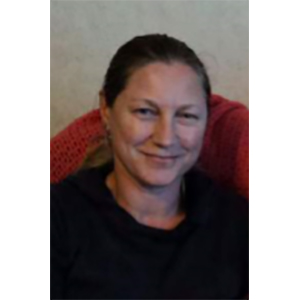Queen's University, Belfast

| Current Position | Lecturer |
| Telephone | +44 (0) 2842727803 |
| l.kregting@qub.ac.uk | |
| Departments | School of Natural and Built Environment |
| ECR | Yes |
| Quadrat Core Themes | Biodiversity, Environmental Management |
| Methods I Use | Bio / Geo / Chemical Analytical, Modelling |
| Profiles |
Key Research Interests
- Environmental interactions of wave and tidal energy devices: Sound emission, animal interaction, changes in
hydrodynamics and the influence on the marine environment. - Coastal processes including larval and spore dispersal both applied and for restoration purposes.
- The influence of hydrodynamics on macroalgal productivity.
Recent Key Papers
- Schmitt P, Pine M, Culloch R, Lieber L, Kregting L. Noise characterisation of a sub-sea kite. Journal of the American Society of Acoustics. Accepted.
- Lieber, L., Nimmo-Smith, W. A. M., Waggitt, J. J., & Kregting, L. (2018). Fine-scale hydrodynamic metrics underlying predator occupancy patterns in tidal stream environments. Ecological Indicators, 94(1), 307-408. DOI: 10.1016/ j.ecolind.2018.06.071
- Mooney, K. M., Beatty, G. E., Elsäßer, B., Follis, E. S., Kregting, L., O’Connor, N. E., … Provan, J. (2018). Hierarchical structuring of genetic variation at differing geographic scales in the cultivated sugar kelp Saccharina latissima. Marine environmental research. DOI: 10.1016/j.marenvres.2018.09.02
Summary Title of Current Studentships
- The influence of currents and waves on the productivity of Laminaria digitata.
- The interplay of hydrodynamics and invasive species around anthropogenic structures in the marine environment.
- Developing a framework for a flexible and detailed marine renewable energy collision risk model.
- How differences in behaviour can influence functional response in invasive and native species.
- Aquatic Invasive Alien Species: Distribution, Impact, Control & Biosecurity
- Behavioural changes of top predators related to tidal-stream energy extraction – using Unmanned Aerial Vehicles (UAVs) to measure animal distribution.
- QUADRAT DTP student, Rosslyn Watret: Fish Spas: The importance of turbulence on stress levels of fish in dynamic environments
- QUADRAT DTP student, Molly Crowe: Quantifying kelp detrital pathways: what is potentially locked away as Blue Carbon?

 PURE
PURE ORCID
ORCID



















































